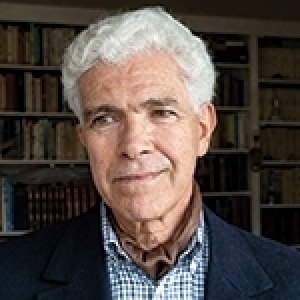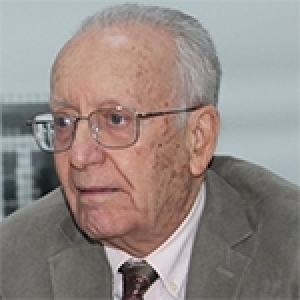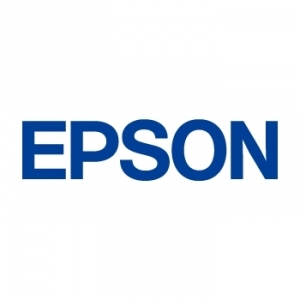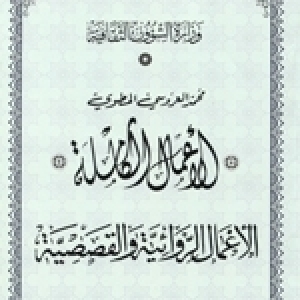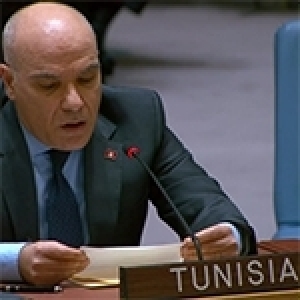News - 08.10.2011
Les 45 mn d'entretiens Obama – Caïd Essebsi : l'impératif de réussir la transition en Tunisie, essentielle pour le reste de la région
Ils se sont bien compris : Les Etats-Unis d’Amériques ont grand intéret à voir la transition démocratique réussir en Tunisie pour servir de modèle dans la région, comme la Tunisie a elle aussi grand besoin de compter sur le soutien américain afin d’y parvenir. Les 45 minutes d’entretiens, vendredi après-midi au bureau ovale de la Maison Blanche, entre le Président Barack Obama et son hôte, le Premier ministre, M. Béji Caïd Essebsi ont été intenses pour marquer à nouveau l’engagement des Etats-Unis à soutenir le processus de transformation initiée par la Tunisie depuis sa révolution. Cette assistance concerne notamment, dans son volet économique et financier, des besoins budgétaires immédiats, le soutien à la croissance du secteur privé, la réduction de la pauvreté et l’appui au développement de la jeunesse. L’ensemble doit toucher les Tunisiens dans leur vie quotidienne et contribuer à son amélioration.
Dans une déclaration à la presse à l’issue de ces entretiens, le Président Obama s’est déclaré encouragé par les progrès déjà réussis, grâce en partie au leadership du Premier ministre et au courage du peuple tunisien et souligné l’importance des transformations économiques qui doivent accompagner de concert les transformations politiques. « Pour les Etats-Unis, a-t-il déclaré, les enjeux sont très importants que de voir la réussite d’opportunités commerciales et d’investissement en Tunisie. »
« Outre les 39 millions de dollars déjà engagés en faveur de la Tunisie, a précisé le président américain, un ensemble de train de mesures et de programmes ont été mis au point. » Le Président Obama a indiqué par ailleurs que ses entretiens avec M. Essebsi ont également porté sur les diverses transformations dans la région et exprimé « sa profonde admiration pour l’extraordinaire hospitalité et bonté du peuple tunisien à l’égard des réfugiés libyens ». Voir la déclaration complète.
Selon un haut responsable américain à Washington interrogé par Leaders, « l’administration américaine est convaincue que la croissance du secteur privé en Tunisie est capable de booster la création d’emplois, de réduire la précarité, de renforcer la sécurité nationale et d’améliorer les conditions de vie des Tunisiens ». Aussi, souligne-t-il, l’appui à la jeunesse lui permettra de mieux se préparer à l’accès au travail, de participer à la consolidation des capacités nationales et de promouvoir l’esprit de citoyenneté, ce qui constitue le meilleur investissement dans l’avenir. »
De son côté, Christine Schellack, Acting Director for Tunisia, National Security Staff, se félicite de la reprise, dès l’année prochaine en Tunisie des activités du programme des volontaires du Corps de la Paix, portant notamment sur l’enseignement de la langue anglaise et mettant en contact direct des jeunes des deux pays. Rappelant les engagements pris en faveur de la Tunisie par le Président Obama le 19 mai dernier, avec une assistance de 55 millions de dollars pour soutenir la transition, elle a indiqué que cette assistance s’étend à différents programmes économiques, financiers et sociaux, ainsi qu’à l’appui de la justice transitionnelle et à la société civile.
Document
Fact Sheet: The President's Framework for Investing in Tunisia
“There's no straight line to progress, and hardship always accompanies a season of hope. But the United States of America was founded on the belief that people should govern themselves. And now we cannot hesitate to stand squarely on the side of those who are reaching for their rights, knowing that their success will bring about a world that is more peaceful, more stable, and more just.”
?
– President Obama, May 19, 2011
The United States strongly supports the Tunisian people as they continue to lay the foundation for a future of economic prosperity that strengthens civil society, empowers youth, and solidifies the foundation of democracy.
Almost a year after igniting the Arab Spring, Tunisia is charting a path toward reform. Today, President Obama announced four new programs that will continue to support the Tunisian people:
• Peace Corps: Beginning in 2012, the Peace Corps will return to Tunisia with volunteer assignments focusing on English language training and youth skills development. These programs will help prepare Tunisian students and professionals for future employment, build local capacity, and develop citizens at the grassroots level. The return of the Peace Corps to Tunisia offers both countries the opportunity to resume a partnership with a long and productive history.
• The Millennium Challenge Corporation (MCC): Tunisia has been selected as eligible for the MCC Threshold Program. This partnership is recognition of Tunisia’s commitment and progress toward democracy and economic freedom. Tunisia’s inclusion in the MCC program will support the Tunisian government to work on policy reform that can lead to faster growth and generate employment, such as addressing constraints to economic growth, increasing private sector investment, and improving economic governance.
• Loan Guarantees: Tunisia has declared its commitment to private sector-led growth and attracting international investment. If authorized by Congress, the United States can provide loan guarantees at a budgetary cost of $30 million to support a significant portion of the budgetary gap, thereby enabling Tunisia to borrow from international capital markets and bring down the cost of financing Tunisia’s reform agenda.
• Enterprise Fund: Pending authorization from Congress, the United States will launch a Tunisia Enterprise Fund, providing seed money to support private sector growth. At an initial budgetary cost of $20 million, this fund will leverage other investors and help Tunisians launch the small and medium enterprises that will be the engines of long term opportunity.
In addition to these initiatives, the Administration is working to finalize several other new programs, to be implemented in 2012:
• Trade and Investment: This month, the United States and Tunisia agreed to formally re-launch discussions under our bilateral Trade and Investment Framework (TIFA). We have established joint U.S.-Tunisia working groups on bilateral trade and investment and regional economic integration that will report to an initial TIFA Council meeting, which will take place in the next few months.
• Open Government Partnership: Given the stated commitment of Tunisia to transparent, accountable, and participatory government, the U.S. will work with the Tunisian government and civil society to help Tunisia cross the threshold of eligibility for the Open Government Partnership and join the growing number of nations who are embracing openness as the new standard for governance.
• The Overseas Private Investment Corporation (OPIC): OPIC has committed $2 billion to supporting private sector investment in the Middle East and North Africa, including in Tunisia. OPIC is working to invest in small businesses and the franchising of U.S. companies in Tunisia. Additionally, OPIC is providing U.S. companies with incentives to invest in Tunisia’s renewable energy sector, notably wind and solar.
These new programs will build on the United States’ commitment of more than $55 million in non-security assistance in support of the Tunisian transition since January 2011:
• Democracy and Civil Society: The success of Tunisia’s transition depends on its ability to develop a healthy democracy. In support of the Tunisian peoples’ aspirations for democracy, prosperity and long-term political stability, the United States is providing approximately $43.3 million to support rule of law, strengthen political participatory and inclusive processes, build the capacity of civil society, and promote freedom of expression.
• Transitional Justice: Through direct support to local organizations, the U.S. is supporting a Tunisian-led consultative process on transitional justice mechanisms to redress human rights violations under the former regime.
• Private Sector Development: Private sector development contributes to a healthy economy. The United States is providing $3.8 million to support market relevant skills training, entrepreneurship, job placement, and access to start-up business resources in Tunisia.
• Humanitarian Assistance: The U.S. responded immediately to assist individuals seeking refuge in Tunisia as a result of the crisis in Libya by contributing over $3 million to the Tunisian Red Crescent, the World Food Program, and the World Health Organization to support health services, food aid, and distribution of relief commodities.
Additionally, a significant portion of our $46.5 million in region-wide funding to UNHCR and IOM was used in Tunisia to meet basic humanitarian needs and repatriate stranded third-country nationals.
Education, Culture, and Media Capacity Building: The United States responded immediately to the requests of the Tunisian people for additional links, exchanges, technical advice, and English language training with U.S. universities and scholars. Contributing over $5 million, we increased the Fulbright program in Tunisia, deployed English language specialists, established media training for over 50 Tunisian journalists, and established partnerships with a range of Tunisian universities.
commenter cet article
1 Commentaire
- Ecrire un commentaire
- Commenter
Les Commentaires

mahfoudhi - 08-10-2011 17:04
svp traduire cet article ,pour ceux qui n'ont pas en core compris ,la val de si BEJI,le chef du gouv tunisien
Les + lus
06.01.2026
Les + commentés
06.01.2026
23.11.2025

